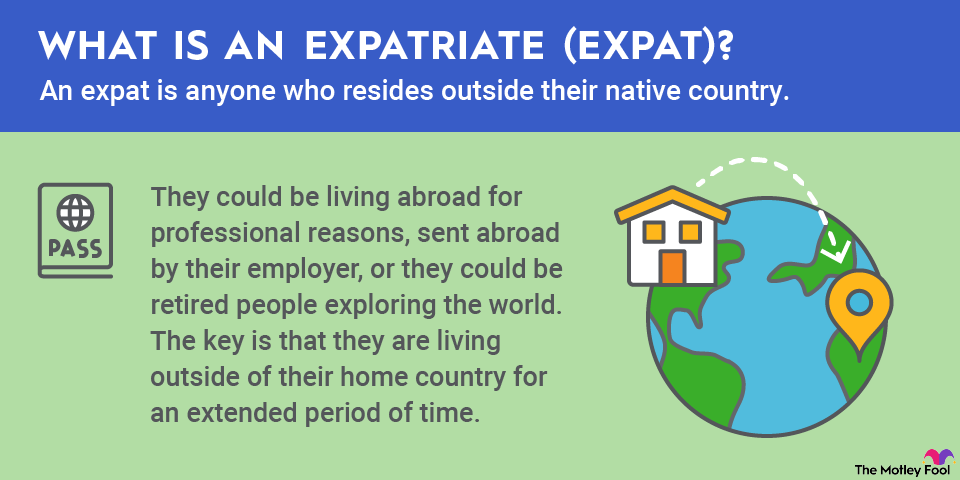An expatriate, or expat, is anyone who resides outside their native country. They could be living abroad for professional reasons, sent abroad by their employer, or they could be retired people exploring the world. The key is that they are living outside of their home country for an extended period of time.

What is an expatriate?
An expatriate is someone who lives in a country other than their country of origin. They could be in another country on an assignment from their employer, or they may have moved to another country for work.
Some people may also retire abroad. Retirees from countries with a high cost of living may be able to find a better life in a country with a lower cost of living. Not only could their retirement savings last them longer, they may find better weather or a more enjoyable life in another country.
Why do people become expats?
There are plenty of reasons to become an expatriate, but many focus on the potential for some sort of economic arbitrage.
Expatriates in the workforce are often paid better by their employers than if they stayed home. In fact, they’ll often be able to save more money for retirement or make more money than the locals, which can result in a very nice lifestyle. Expatriates may also find their new locale has a lower cost of living than their original home, providing a nice lifestyle or savings boost, as well.
Some countries provide better access to beaches, skiing, hiking, or other outdoor activities that might be appealing to expatriates. Some have less expensive or more accessible healthcare systems. And some expatriates may simply want to immerse themselves in another culture.
Tax benefits for expatriates
Some expats may be able to lower their tax liability by living abroad for most of the year.
Someone moving from a high-tax country to a low-tax country may find they can keep a greater percentage of their paycheck. They may have to renounce their citizenship, however, since many countries will tax citizens on their worldwide income, merely providing a credit for foreign taxes paid.
The U.S. offers a foreign earned income exclusion to its citizens living abroad. The rule allows U.S. expats to exclude a certain amount of income from their U.S. taxable income if they meet certain residency requirements. That can provide them with significant tax relief.
Additionally, the U.S. offers a foreign tax credit, which can be used to offset taxes owed in the United States. Although the credit cannot be combined with the foreign earned income exclusion, it prevents citizens from having to pay taxes twice on the same income.
Related investing topics
Retiring abroad as a U.S. expat
A couple may choose to retire abroad to reduce their cost of living and see more of the world.
Consider a retired couple that moved from the U.S. to Costa Rica to enjoy better weather, the mountains, beaches, and the lower cost of living. Many retirees can live well on just $2,000 per month in the country. At $24,000 per year plus about $6,000 for extra extravagances, a couple could retire with just $750,000 in their portfolio and still follow the 4% rule.
They wouldn’t have to pay any additional taxes on their income from Costa Rica since it only taxes income earned in the country. Additionally, the taxes on their retirement income in the United States would remain extremely low because they’re living on so little.
By moving abroad, American retirees may be able to enjoy a better retirement with less money -- just one of many reasons people become expats.


















